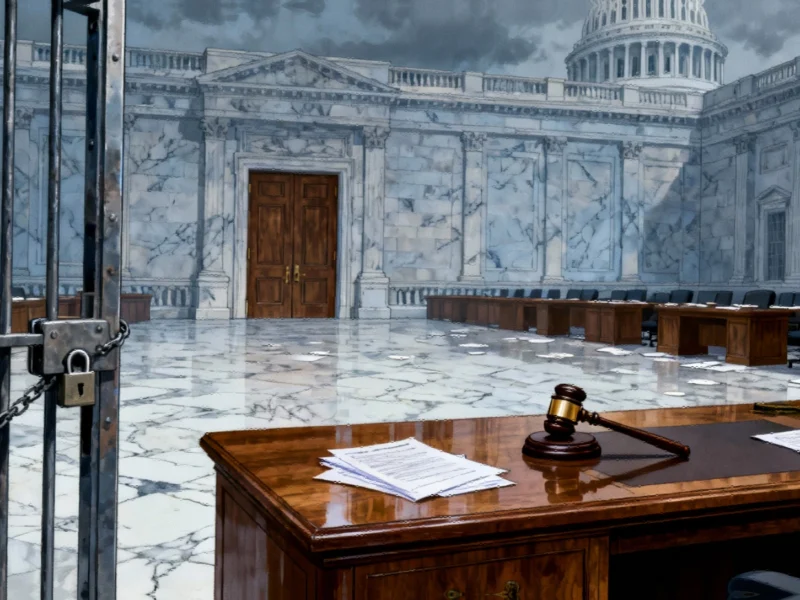Policy Shift in Digital Procurement Strategy
The UK Cabinet Office has signaled a potential reversal of its offshore work ban for an £8 million contract supporting the Central Digital Platform (CDP), the government’s primary online procurement notice and tendering system. This reconsideration comes despite previous security concerns that prompted strict localization requirements. The proposed variation would allow contractor Goaco Group Ltd to offshore subcontractor resources for advisory support on continuous improvement activities, marking a significant departure from the original contract terms that mandated all work be completed within the United Kingdom.
In a recent notice, the Cabinet Office justified the potential change citing “extreme urgency brought about by events unforeseeable for the contracting authority.” This development follows the government’s earlier comprehensive assessment of offshore restrictions across its digital infrastructure projects, highlighting the evolving nature of security and operational considerations in government technology contracts.
Contractual Contradictions and Security Implications
The original contract, awarded in April, explicitly prohibited offshoring of any work and classified the agreement as “higher-risk.” Contract documents stipulated that both the supplier and subcontractors “may store, access or handle government data in… the United Kingdom only.” The Secure by Design Questionnaire further reinforced these geographical restrictions for all support and development activities.
The potential policy shift raises questions about how the government balances security concerns with operational flexibility. As organizations worldwide navigate similar challenges, many are adopting new approaches to corporate governance that accommodate changing circumstances while maintaining security standards.
Market Response and Procurement Industry Concerns
Procurement professionals familiar with government contracting have expressed concerns that failed bidders might feel disadvantaged by the rule changes after the competition concluded. However, industry sources suggest challengers are unlikely to formally protest due to fears of jeopardizing future contract opportunities.
The situation reflects broader regulatory adjustments affecting technology sectors globally, where governments are reevaluating previous restrictions in response to emerging needs and unforeseen circumstances.
Financial Context and Program Evolution
The CDP program represents a significant investment in transforming government commercial services. Under previous Conservative government projections, annual running costs were estimated at £1.5 million from 2024/25 to 2030/31. The current arrangement includes Goaco’s £8 million contract running from April 2025 to April 2027, plus a separate £17 million contract awarded to consultancy EY as “Digital Delivery Partner,” bringing combined annual costs to approximately £4 million.
The Cabinet Office confirms the CDP’s scope has expanded under the current government to include multiple commercial services, including the Find a Tender Service and Contracts Finder platforms. This expansion aligns with broader digital transformation initiatives across the public sector aimed at improving efficiency and accessibility.
Technological Context and Industry Parallels
The government’s deliberation on offshoring restrictions occurs alongside significant advancements in predictive technologies that are reshaping how organizations manage complex systems and make operational decisions. These technological developments are influencing procurement strategies across sectors.
Similarly, innovations in strategic approaches to complex challenges demonstrate how organizations are developing more flexible operational models to address unexpected obstacles while maintaining core objectives.
Transparency and Next Steps
A Cabinet Office spokesperson emphasized that “no offshoring has occurred” and characterized the notice as part of their “commitment to transparency.” The office confirmed the notice followed a request from Goaco and that suppliers have the right to respond before any final decision is made.
The situation highlights how even carefully planned digital transformations must sometimes adapt to changing circumstances. As the government evaluates its options, the technology sector continues to evolve with new platform developments that could influence future procurement strategies and operational models.
The Cabinet Office has stated it will not comment further until after the notice deadline, leaving industry observers to speculate about the “unforeseeable events” prompting this reconsideration and the potential implications for future government technology contracts.
This article aggregates information from publicly available sources. All trademarks and copyrights belong to their respective owners.
Note: Featured image is for illustrative purposes only and does not represent any specific product, service, or entity mentioned in this article.



